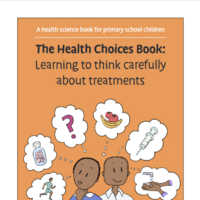Search
Books+
Searching 1,730 books
Search related to the career Health Care Administrator
Responsibilities of a Health Care Administrator:
1. Strategic Planning and Policy Development:
- Developing and implementing long-term goals and objectives for the healthcare organization.
- Creating policies and procedures to ensure efficient and effective healthcare delivery.
- Analyzing market trends and competition to make informed decisions.
2. Financial Management:
- Overseeing budgeting and financial planning for the healthcare organization.
- Monitoring and controlling expenses to ensure financial sustainability.
- Managing billing, reimbursement, and insurance processes.
3. Human Resources Management:
- Recruiting, hiring, and training staff members.
- Developing and implementing employee policies and procedures.
- Ensuring compliance with labor laws and regulations.
4. Quality Assurance and Compliance:
- Establishing and monitoring quality standards for patient care.
- Ensuring compliance with healthcare regulations and accreditation standards.
- Implementing quality improvement initiatives and risk management strategies.
5. Facility and Operations Management:
- Managing the physical infrastructure and equipment of healthcare facilities.
- Overseeing maintenance, security, and safety protocols.
- Ensuring efficient utilization of resources and optimizing workflow.
6. Patient Care Coordination:
- Collaborating with healthcare providers to ensure seamless patient care.
- Implementing strategies to improve patient satisfaction and experience.
- Resolving patient complaints and addressing concerns.
7. Information Management and Technology:
- Overseeing the implementation and maintenance of electronic health records.
- Ensuring data privacy and security.
- Utilizing technology to improve healthcare delivery and communication.
8. Community Relations and Public Health:
- Building and maintaining relationships with community organizations and stakeholders.
- Promoting public health initiatives and community outreach programs.
- Representing the healthcare organization in public forums and events.
9. Ethical and Legal Compliance:
- Upholding ethical standards in healthcare administration.
- Ensuring compliance with legal and regulatory requirements.
- Addressing ethical dilemmas and promoting ethical decision-making.
10. Continuous Professional Development:
- Staying updated with industry trends, advancements, and best practices.
- Participating in professional development activities and continuing education.
- Networking with other healthcare administrators and professionals.
These responsibilities may vary depending on the specific healthcare setting and the size of the organization.
Source: Various AI tools
Healthcare providers
Books tagged healthcare providers
Searched in English.

















